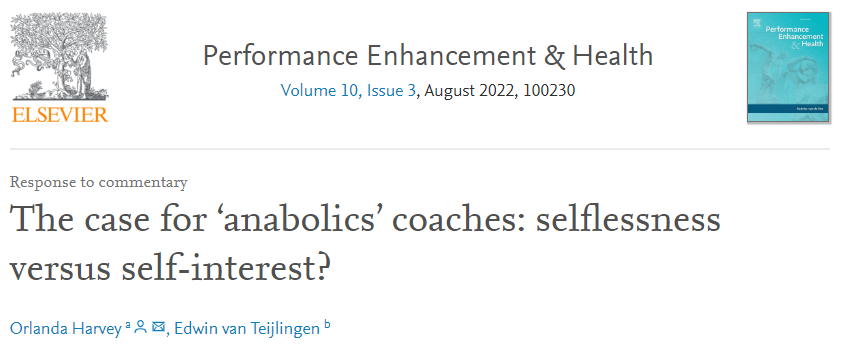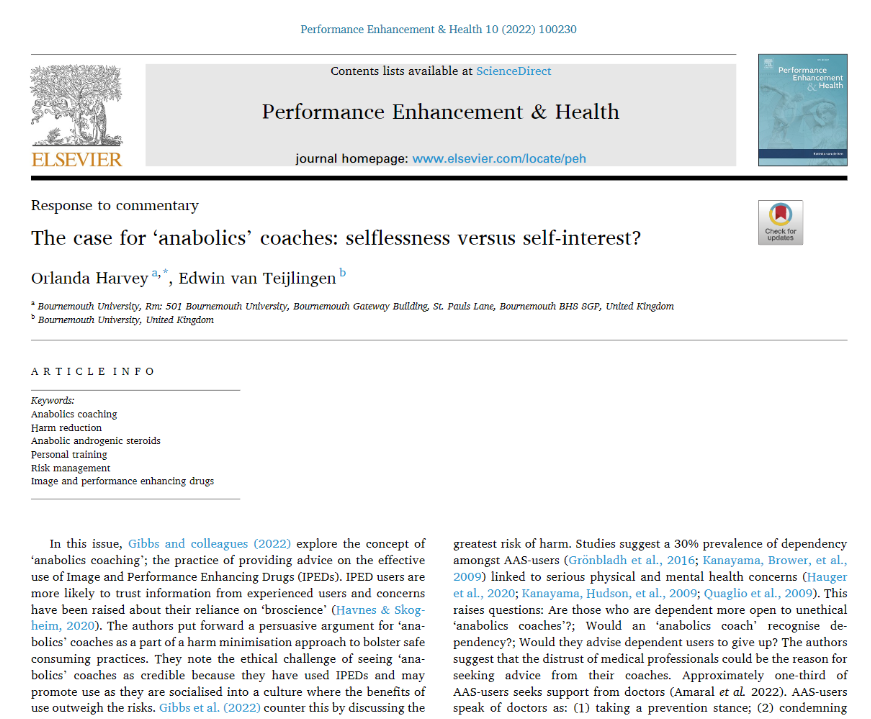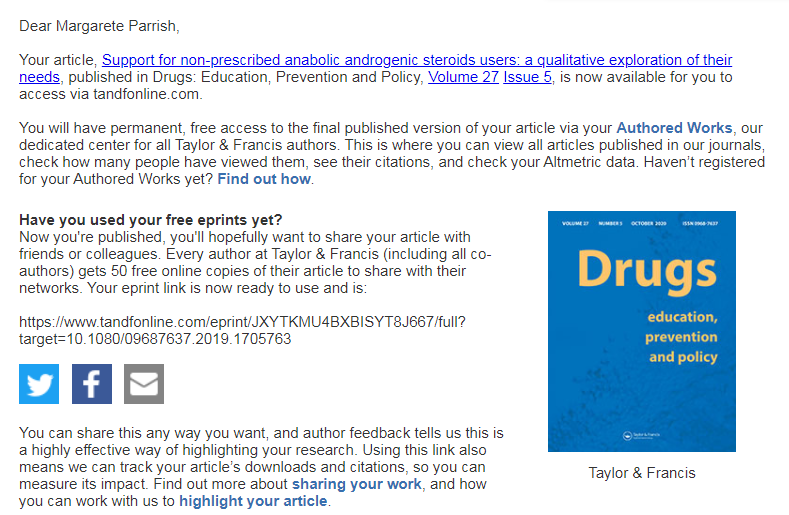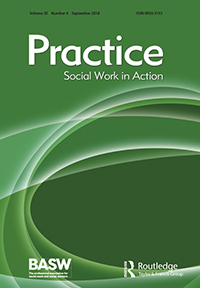This week the journal Performance Enhancement & Health published Orlanda’s latest paper. This time a Response to a Commentary under the title ‘The case for ‘anabolics’ coaches: selflessness versus self-interest?’ [1]. It is good to see Orlanda making her name in this research field, and the invitation by the journal to write this Response is evidence of this. Dr. Harvey is Senior Lecturer in the Department of Social Sciences & Social Work.
 The authors highlight that in the UK AAS (Anabolics Androgenic Steroid) are classified as Class C substances and supplying AAS, including via online from outside the UK, sharing or giving them away free, is unlawful and can lead to a jail sentence. However,Despite being banned in many sports, the use of AAS per se is not illegal and, therefore, health promoters should offer advice, information and support to users as a pragmatic, although not perfect, solution. Since an ‘informal’ structure already exists, health promotion agencies should consider using ‘anabolics coaches’ in their endeavours. If ‘anabolics coaches’ could bring together the prevention-focused medical profession, a harm-minimisation approach, and those from the users’ subculture to develop a platform whereby they can take an inter-disciplinary approach then an opportunity exists to do a lot of good.
The authors highlight that in the UK AAS (Anabolics Androgenic Steroid) are classified as Class C substances and supplying AAS, including via online from outside the UK, sharing or giving them away free, is unlawful and can lead to a jail sentence. However,Despite being banned in many sports, the use of AAS per se is not illegal and, therefore, health promoters should offer advice, information and support to users as a pragmatic, although not perfect, solution. Since an ‘informal’ structure already exists, health promotion agencies should consider using ‘anabolics coaches’ in their endeavours. If ‘anabolics coaches’ could bring together the prevention-focused medical profession, a harm-minimisation approach, and those from the users’ subculture to develop a platform whereby they can take an inter-disciplinary approach then an opportunity exists to do a lot of good.

References:
- Harvey, O., van Teijlingen, E. (2022) The case for ‘anabolics’ coaches: selflessness versus self-interest? Performance Enhancement & Health, 10(3) August, 100230














 Second NIHR MIHERC meeting in Bournemouth this week
Second NIHR MIHERC meeting in Bournemouth this week Dr. Ashraf cited on ‘Modest Fashion’ in The Guardian
Dr. Ashraf cited on ‘Modest Fashion’ in The Guardian NIHR-funded research launches website
NIHR-funded research launches website MSCA Postdoctoral Fellowships 2025 Call
MSCA Postdoctoral Fellowships 2025 Call ERC Advanced Grant 2025 Webinar
ERC Advanced Grant 2025 Webinar Horizon Europe Work Programme 2025 Published
Horizon Europe Work Programme 2025 Published Horizon Europe 2025 Work Programme pre-Published
Horizon Europe 2025 Work Programme pre-Published Update on UKRO services
Update on UKRO services European research project exploring use of ‘virtual twins’ to better manage metabolic associated fatty liver disease
European research project exploring use of ‘virtual twins’ to better manage metabolic associated fatty liver disease